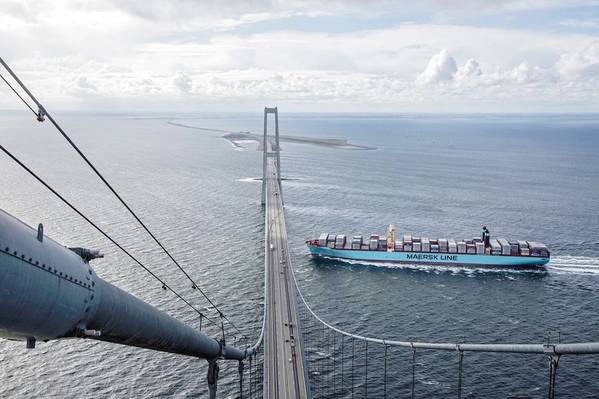
Progress on the transformation of A. P. Moller - Maersk continued in 2018. Customers benefited from integrated offerings, digital solutions and robust network improvements. Since 2016, the topline has grown by 43%, to $39bn in 2018, an additional $12bn in turnover.
“In 2018, we made significant progress in implementing our strategy. With the expected demerger and listing of Maersk Drilling in April, the separation of our Energy-related businesses will be almost complete. We have successfully integrated Hamburg Süd, accelerated our digital transformation and come together across sales, customer service, delivery and products as one company with customers at the center of our attention. We are starting to see growth both in Ocean and non-Ocean segments,” said Søren Skou, CEO of A.P. Moller - Maersk.
Profitability was in line with the latest guidance for 2018, with earnings before interests, tax, depreciation and amortization (EBITDA) of $3.8bn, up 8% over 2017. The improvement in operating earnings was driven by higher freight rates, efficiencies gained from the integration of continuing operations, and synergies from the acquisition of Hamburg Süd. However, margins in continuing operations were challenged and EBITDA was lower than initially expected at the beginning of the year, primarily due to an increase in bunker fuel prices not fully recovered by higher freight rates.
“Although we had a challenging start to 2018, looking at our financial performance, we increased earnings despite significantly higher bunker fuel prices and lower than expected container volume growth in the second half of 2018. However, profitability needs to improve,” said Søren Skou.
During 2018, net interest-bearing debt was significantly reduced from $14.8bn to $8.7bn and the company remains investment grade rated.
Following the listing of Maersk Drilling through a demerger and subject to maintaining investment grade rating, details on future dividend policy, capital structure and the distribution of a significant part of the proceeds from the sale of Maersk Oil will be announced no later than August 2019.
Guidance for 2019
From 2019 and onwards, International Financial Reporting Standard (IFRS) 16 will be applied. IFRS 16 entails that leases beyond 12 months will be included in the balance sheet as assets and liabilities.
For 2019, Maersk expects EBITDA of around $5bn including effects from IFRS 16, and around $4bn excluding effects from IFRS 16. A.P.
The organic volume growth in Ocean is expected to be in line with the estimated average market growth of 1-3% for 2019. Guidance on CAPEX is around $2.2bn and high cash conversion (cash flow from operations compared with EBITDA) is expected.
Maersk’s guidance for 2019 is subject to considerable uncertainties due to the current risk of further restrictions on global trade and other factors impacting container freight rates, bunker prices and foreign exchange rates.



